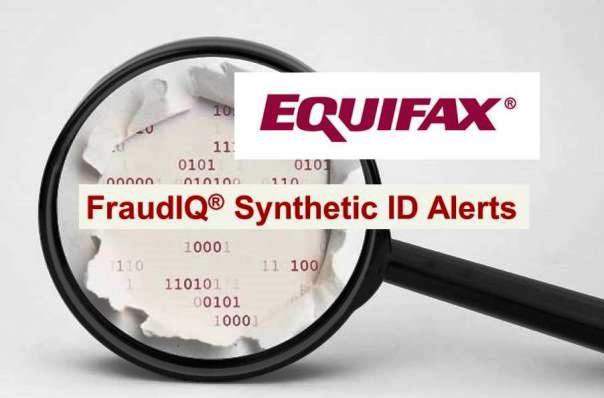Patent-pending analytics for synthetic identity fraud detection
Equifax Inc. (NYSE: EFX) has announced the launch of its FraudIQ® Synthetic ID Alerts, developed to protect against synthetic identity (ID) fraud while minimizing false positives. FraudIQ Synthetic ID Alerts, delivered in batch or real-time, are based on patent-pending algorithms that analyze attributes such as authorized user behaviors and identity discrepancies to help determine if the identity presented is potentially synthetic.
“Since synthetic ID fraud emerged as a threat years ago, it has steadily grown to become a predominant tactic for fraudsters– and a major concern for many of our customers in the United States,” said Ken Allen, Senior Vice President of Identity and Fraud at Equifax. “FraudIQ Synthetic ID Alerts were designed to help combat synthetic ID fraud with insights that detect linkages and suspicious patterns, in order to determine if the applicant is a real person.”
What is Synthetic Identity Fraud?
Synthetic ID fraud occurs when new fake identities are created using different components of real identities, such as a name from one person, an address from another and the Social Security Number from someone else. After the identity is created, fraudsters open new accounts, gain credit, and abandon the accounts. Seldom is there anyone to contact in order to collect funds following this, making it difficult for organizations to classify the loss. This can damage companies significantly, resulting in fraud expenses, reputational risk, and a negative impact on the customer experience. In fact, Aite Group estimated that U.S. synthetic identity fraud losses for credit card exceeded $800 million in 2017.1
A More Advanced Approach for Combatting the Problem: FraudIQ Synthetic ID Alerts
FraudIQ Synthetic ID Alerts use more advanced analytics to help reduce fraud charge-offs and other losses associated with this type of tactic. For example, matching logic is infused to enable classification of authorized user abuse, and machine learning algorithms help discover unique consumer behavior patterns.
FraudIQ Synthetic ID Alerts also have many different applications for multiple industries. In the banking and lending industry, these alerts can be used for credit cards, personal loans, auto loans and demand deposit accounts (DDA), as fraudsters often use DDA accounts as a foot in the door to get to other lines of credit. A recent Equifax study2 of its top 15 credit card issuers processing more than 80 million new accounts per year showed that just within a year’s time, one-half million accounts were identified as potential synthetic identities – which translates to a potential loss of more than $300 million to the credit card industry.
A similar Equifax study3 was applied to the top telecommunications and utilities providers, and of the 31 million accounts reviewed in the analysis, more than 90,000 of the accounts were flagged as potentially synthetic. Among those flagged, 27 percent became delinquent. With an average charge-off of $886 per account, this represents a potential $25 million loss to the industry in just 12 months.
Successfully protecting against fraud requires a multi-layered approach. The Equifax FraudIQ integrated product suite includes several other tools that assist with identity verification, authentication, and fraud detection solutions. For more information on FraudIQ Synthetic ID Alerts you can visit our website, download this infographic or view this video Q&A with Ken Allen, SVP of Identity and Fraud at Equifax. Follow our product news on Twitter at @EquifaxInsights and on LinkedIn at Equifax Business Insights.
Source: Equifax Press Release


























